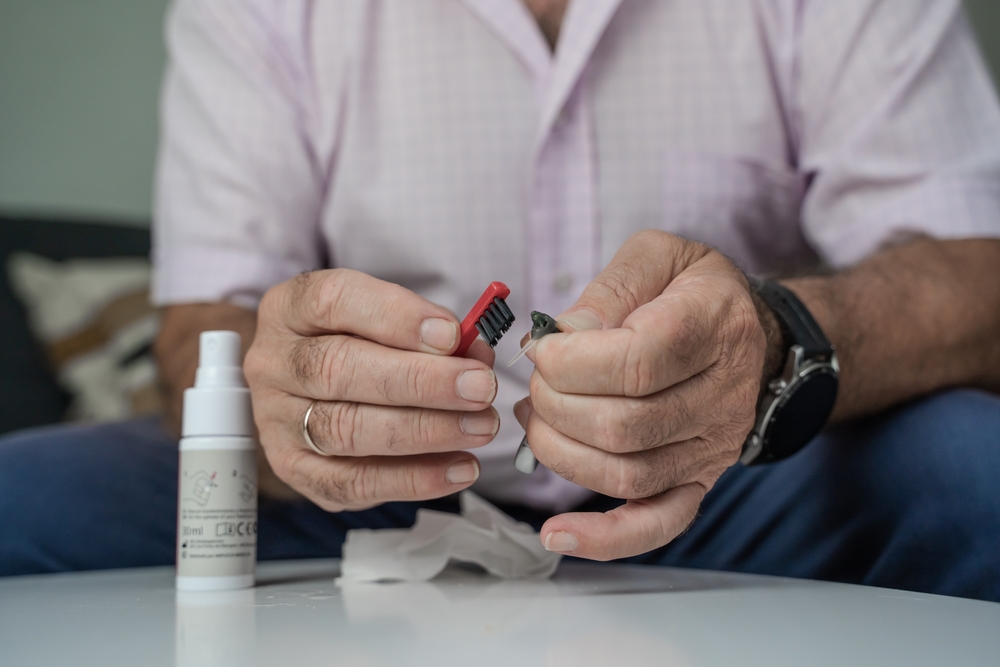When you’re a kid, falling is just a part of life. Taking a spill on your bicycle? That’s normal. Tripping over your own feet while you’re running outside? Also pretty normal. It’s not really a concern because, well, kids are pretty limber. They bounce back pretty easily.
The same cannot be said as you age. The older you get, the more worrisome a fall can become. In part, that’s because your bones tend to break more easily (and heal more slowly). In part, it’s because older individuals may have a harder time getting up after a fall–so they spend more time in pain on the floor. As a result, falls are the number one injury-related cause of death in people over 65.
It’s not surprising, then, that healthcare professionals are always on the lookout tools and devices that can reduce falls. New research seems to suggest that we may have found one such device: hearing aids.
Can hearing loss cause falls?
In order to figure out why hearing aids can help prevent falls, it helps to ask a related question: does hearing loss make you more likely to fall in the first place? In some cases, it appears that the answer is a strong affirmative.
So why does hearing loss increase fall risk for people?
That connection isn’t exactly intuitive. After all, hearing loss does not directly impact your ability to move or see. But it turns out there are some symptoms of hearing loss that do have this kind of direct impact on your ability to get around–and these symptoms can lead to an increased risk of falling. Some of those symptoms include:
- Loss of balance: How does hearing loss effect your balance? Well, your inner ear is incredibly important to your overall equilibrium. So when hearing loss impacts your inner ear, you may find yourself a little more likely to grow dizzy, experience vertigo, or have trouble keeping your balance. In other words, you have a tendency to fall more often.
- Depression: Untreated hearing loss can lead to social isolation and depression (not to mention an increased risk of dementia). When you’re socially isolated, you might be more likely to spend time at home–where tripping hazards abound–and be less likely to have help close at hand.
- Exhaustion: When you have untreated hearing loss, your ears are always straining–and your brain is often working overtime. This means your brain is tired more often than not. A tired brain is less likely to notice that obstacle in your path–and, as a result, you may end up tripping and falling over something an alert brain would have noticed.
- You can’t hear high frequency sounds: You know how when you walk into an auditorium, you immediately know that you’re in a large-venue environment–even if your eyes are closed? Or when you get into a car and you immediately know you’re in close quarters? That’s because your ears are using high frequency sounds to help you “echolocate,” more or less. When you can no longer hear high frequency sounds due to hearing loss, you can’t make those judgments quite as quickly or easily. This can lead to disorientation and loss of situational awareness.
- You have less situational awareness: When you have untreated hearing loss, you may not be as able to hear that oncoming vehicle, or the barking dog next to you, or the sound of your neighbor’s footsteps. In other words, your situational awareness may be significantly impacted. Can hearing loss make you clumsy in this way? Well, sort of–loss of situational awareness can make everyday tasks slightly more dangerous. And that means you might be slightly more likely to accidentally bump into something–and take a fall.
Part of the connection between hearing loss and falling is also in your age. As you age, you’re more likely to develop permanent and progressive hearing loss. At the same time, you’re more likely to take a tumble. As a result, when you get older, you’re more likely to take a fall–and that fall is more likely to have serious consequences.
How can hearing aids help reduce falls?
If hearing loss is part of the problem, it makes sense that hearing aids would be part of the solution. And new research has borne that out. One recent study found that wearing hearing aids could cut your risk of a fall in half. That’s an almost fifty percent reduction just by wearing your aids!
In the past, these numbers (and the relationship between hearing aids and staying upright) were a bit fuzzier. In part, that’s because not everyone wears their hearing aids all the time. As a result, falls among “hearing aid users” were often inconclusive. This wasn’t because the hearing aids weren’t working–it was because people weren’t wearing them.
But this new study took a different (and perhaps more accurate) approach. Those that wore their hearing aids often were put in a different group than those who wore them intermittently.
So why does wearing your hearing aids help you avoid falls? In general, they keep you more alert, more focused, and less exhausted. The added situational awareness doesn’t hurt either. Additionally, many hearing aids have safety features designed to activate in the case of a fall. For example, if you do fall, some hearing aids will automatically contact loved ones or emergency services. This can mean you get help faster (this is critical for people older than 65).
But the key here is to make sure you’re wearing your hearing aids often and consistently.
Get your fall prevention devices today
Hearing aids can help catch up with your friends, enjoy quality moments with your loved ones, and stay connected to everyone who’s important in your life.
They can also help you stay on your feet–literally!
If you want to find out more about how hearing aids could help you, schedule an appointment with a qualified hearing specialist near you today.



